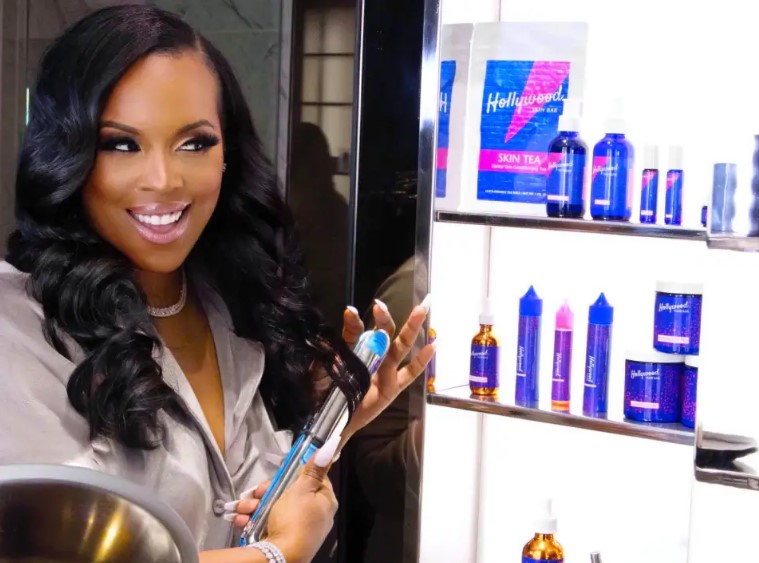Who doesn’t dream of having a luscious mane? Whether you’re dealing with thinning hair or just want to maintain healthy locks, understanding natural hair regrowth is key. This article will walk you through everything you need to know about unlocking the secrets to natural hollywood hair store hair regrowth, offering proven tips and techniques to help you on your journey. Let’s dive into the world of hair and discover how you can achieve the hair of your dreams!

Understanding Hair Growth
Before we can explore how to regrow hair naturally, it’s essential to understand the hair growth cycle. Hair grows in three main stages: Anagen (growth phase), Catagen (transition phase), and Telogen (resting phase). Each hair strand is at a different stage in its cycle at any given time. The Anagen phase is where hair growth occurs, lasting anywhere from two to seven years. This is followed by the Catagen phase, a short transitional phase that lasts about 10 days. Finally, the hair enters the Telogen phase, where it rests before eventually falling out and being replaced by new growth.
Various factors influence hair growth, including genetics, hormones, and overall health. Knowing how these elements affect your hair can help you make informed decisions about your hair care routine.
Common Causes of Hair Loss
Hair loss can be distressing, but understanding the underlying causes can help you address the issue more effectively. Some of the most common causes include:
Genetic Predisposition
Hereditary hair loss, known as androgenetic alopecia, is the most common cause of hair thinning. This condition can affect both men and women and usually progresses with age.
Hormonal Changes
Hormones play a significant role in hair growth. Changes in hormonal levels, such as during pregnancy, menopause, or thyroid imbalances, can lead to hair loss.
Nutritional Deficiencies
A lack of essential nutrients like vitamins A, C, D, E, zinc, iron, and omega-3 fatty acids can impact hair health. A balanced diet is crucial for maintaining healthy hair.
Stress and Lifestyle Factors
High stress levels can trigger hair loss, known as telogen effluvium. Additionally, lifestyle factors like poor sleep, smoking, and excessive alcohol consumption can contribute to hair thinning.
Proven Tips for Natural Hair Regrowth
Ready to start your journey to natural hair regrowth? Here are some proven tips that can help you achieve thicker, healthier hair.
Proper Nutrition
One of the most crucial aspects of hair health is nutrition. Your hair needs a variety of nutrients to grow and remain healthy. Vitamins and minerals like biotin, vitamin E, vitamin D, zinc, and iron are essential for hair growth. Including foods like eggs, nuts, leafy greens, and fatty fish in your diet can promote hair health.
Scalp Care
A healthy scalp is the foundation for healthy hair. Keeping your scalp clean and free from excess oil and product buildup is crucial. Choose a gentle shampoo and conditioner that suits your hair type. Regularly massaging your scalp can also stimulate blood circulation, promoting hair growth.
Natural Oils and Treatments
Natural oils like coconut oil, castor oil, and argan oil are excellent for hair care. These oils provide nourishment, reduce breakage, and add shine. For best results, apply the oil to your scalp and hair, leave it on for a few hours or overnight, and then wash it out thoroughly.
Hair Growth Supplements
Supplements can be a helpful addition to your hair care regimen. Biotin and collagen supplements are popular for promoting hair growth. However, it’s essential to consult with a healthcare professional before starting any new supplement.

Lifestyle Changes for Healthier Hair
Healthy hair is often a reflection of a healthy lifestyle. Here are some lifestyle changes that can support hair growth:
Stress Management Techniques
Chronic stress can negatively impact your hair. Practices like meditation, yoga, and deep breathing exercises can help manage stress levels and promote overall well-being.
Importance of Regular Exercise
Exercise improves blood circulation, including to the scalp, which can promote hair growth. Aim for at least 30 minutes of moderate exercise most days of the week.
Proper Sleep and Hydration
Adequate sleep and hydration are essential for overall health, including hair health. Aim for 7-9 hours of sleep per night and drink plenty of water throughout the day.
Hair Care Routine for Optimal Growth
A consistent hair care routine can make a significant difference in the health and appearance of your hair. Here are some best practices:
How to Wash and Dry Your Hair Correctly
Avoid washing your hair with hot water, as it can strip the hair of its natural oils. Instead, use lukewarm or cool water. When drying your hair, gently pat it with a towel instead of rubbing, which can cause breakage.
Best Practices for Styling Without Damage
Limit the use of heat styling tools like blow dryers, straighteners, and curling irons. If you must use them, apply a heat protectant spray first. Additionally, avoid tight hairstyles that can pull on your hair and cause damage.
Protecting Hair from Environmental Factors
Environmental factors like UV rays, pollution, and harsh weather can damage your hair. Wear a hat or use hair products with UV protection when spending time outdoors.
Natural Remedies and DIY Treatments
If you prefer a more natural approach, there are plenty of DIY treatments you can try at home:
Homemade Hair Masks and Treatments
Ingredients like avocado, honey, and yogurt can be used to create nourishing hair masks. These treatments can provide moisture, reduce frizz, and promote hair growth.
Using Herbs and Spices for Hair Health
Herbs like rosemary and spices like turmeric have been used for centuries to promote hair health. You can create a hair rinse or mask using these natural ingredients.
Professional Treatments and Therapies
In some cases, professional treatments may be necessary to achieve the desired results:
Overview of Popular Treatments Like PRP and Microneedling
Platelet-rich plasma (PRP) therapy and microneedling are popular treatments for hair loss. PRP involves injecting your plasma into the scalp to stimulate hair growth, while microneedling involves using tiny needles to create micro-injuries in the scalp, promoting healing and hair growth.
When to Consult a Dermatologist
If you’re experiencing significant hair loss or thinning, it’s essential to consult a dermatologist. They can help diagnose the underlying cause and recommend appropriate treatments.
Myths and Misconceptions About Hair Growth
There are many myths and misconceptions about hair growth that can lead to unrealistic expectations:
Common Myths Debunked
One common myth is that cutting your hair will make it grow faster. While regular trims can prevent split ends, they don’t affect the rate of hair growth. Another myth is that wearing hats causes hair loss. However, hair loss is typically due to genetic and hormonal factors, not headwear.
Understanding Realistic Expectations
It’s essential to have realistic expectations when it comes to hair growth. While some products and treatments can improve the health and appearance of your hair, they won’t work overnight. Consistency and patience are key.
Maintaining Healthy Hair for the Long Term
Once you’ve achieved your desired hair growth, maintaining it is crucial:
Importance of Regular Trims
Regular trims can help prevent split ends and breakage, keeping your hair looking healthy and vibrant.
How to Prevent Future Hair Loss
To prevent future hair loss, continue following a balanced diet, managing stress, and practicing good hair care habits. Avoid harsh chemicals and heat-styling tools that can damage your hair.

Conclusion
Unlocking the secrets to natural hair foam wrap is about understanding the factors that influence hair health and adopting a consistent, nourishing hair care routine. From proper nutrition and scalp care to natural remedies and professional treatments, there are many ways to support hair growth and maintain healthy locks. Remember, patience and consistency are key to seeing results. Start implementing these tips today and enjoy the journey to healthier, fuller hair!
FAQs
What are the best vitamins for hair growth?
Vitamins such as biotin, vitamin D, vitamin E, and zinc are crucial for promoting hair growth. These nutrients support various aspects of hair health, from strengthening hair strands to nourishing the scalp.
Can stress really cause hair loss?
Yes, high-stress levels can trigger a condition known as telogen effluvium, where a large number of hair follicles enter the resting phase, leading to hair shedding. Managing stress through relaxation techniques can help mitigate this.
How often should I trim my hair to promote growth?
Regular trims every 6-8 weeks can help prevent split ends and breakage, which can make hair appear fuller and healthier. However, trimming does not directly influence the rate of hair growth.
Are natural oils effective for all hair types?
Yes, natural oils like coconut, castor, and argan oil can benefit all hair types. However, the method and frequency of application may vary depending on your hair’s texture and condition.
What should I avoid to prevent hair loss?
To prevent hair loss, avoid excessive heat styling, harsh chemical treatments, and tight hairstyles that pull on the scalp. Also, maintain a healthy diet and manage stress levels to support overall hair health.

